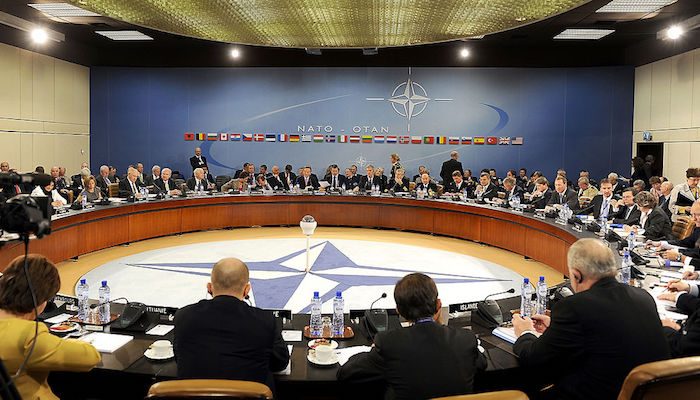
This post is adapted from chapter 17 of International Relations – available now on Amazon (UK, USA, Ca, Ger, Fra) and via a free PDF download.
Coalitions are important to the United States because they add political legitimacy at home and abroad to interventions that often have risks of substantial casualties and long term costs for America and other nations. The American public sees the participation of other nations in the intervention as an endorsement of its own leaders’ wisdom in deciding to intervene. Senior officials, most particularly military chiefs, hope that coalitions will provide needed manpower if the interventions are likely to involve long term occupations. The United States often seeks support and reassurance from coalitions, not the establishment of a precedent—a norm – for international permission for its interventions or partners in operational planning or actual combat. As Afghanistan and Iraq demonstrates in their initial phases, it is perfectly willing to act on its own when it feels there are serious threats to its own security and complications in gaining international approval and assistance. Rarely does the United States allow its troops to serve under foreign commanders. And the assistance it gets in most coalitions is not combat focused. The United States does most flying and fighting.
American politicians complain occasionally about the burdens the United States carries, but not often and not with conviction. NATO has expanded greatly since the end of the Cold War, absorbing many former members of the Warsaw Pact and former republics of the Soviet Union. It has become the vehicle for American managed wars in Libya and Afghanistan, places far from the North Atlantic. But few of the new or old members of NATO meet the alliance’s goal of allocating two percent of Gross Domestic Product (GDP) to defense, safe in the knowledge that the United States, which does nearly twice that, will be there to do any of the serious work back in Europe or anywhere else if it is needed (Rynning, 2012).
In some American eyes, the rich of the world appear to find excuses to do little for global security or even their own defense. Japan and Germany, owners of the world’s third and fourth biggest economies, seem to prefer to be on what is now mostly a voluntary parole for their Second World War crimes. Japan provides financial aid rather than peacekeeping/peacemaking troops in crisis areas. It spends about one percent of its GDP on defense and has been reluctant to provide even operational support for American forces that guard its boundaries. Germany does participate in some UN and NATO sponsored operations, but largely avoids a combat role. Both nations are shielded from nuclear threats by American extended deterrence policy which promises them American protection from challenges by other nuclear powers.
The UK and France, possessing the fifth and sixth largest global economies, do contribute to global security somewhat in proportion to their wealth. Both, however, have been cutting back on their militaries as they feel the stress of economic competition against less encumbered rivals. Domestic politics often complicates their willingness to coordinate with the United States in its frequent interventions. South Korea has the world’s 12th or 13th largest economy, depending on who is counting, is at least 25 times richer than North Korea on a per capita basis, and has twice the population of the North, but leaves the task of defending itself against a now nuclear armed North Korea primarily to the United States. South Korea rarely participates in coalitions to help others and when it does, as in the case of Afghanistan, it sends non-combat troops. Spain, Italy, and a half dozen other rich countries opt out from most of the hard work in international coalitions in a similar manner. The Scandinavian countries, particularly Demark and Sweden, are exceptions, but they are too small to matter in most cases.
China and India are big in many dimensions, but are absorbed with their own security interests. China has the world’s second largest economy and India the ninth. Both are expanding their military power, but limit their participation in international peacekeeping efforts. India has intervened in conflicts in neighboring nations, but worries greatly about its own boundary disputes and its several internal insurrections. China’s recent focus has been on asserting itself as Asia’s dominant power, causing unease among its neighbors who grew accustomed to a more a more inwardly drawn China, one absorbed by minority population issues and the power of the Communist Party to rule.
Without the ability to free-ride on the military of the United States, the big and rich nations of the world may find collectively the need and will to create yet another form of order, one in which they share the decision-making and pay the costs of doing what good can be done. The combined North Africa and the Middle East region lacks a plausible candidate for this role and will likely remain in turmoil until one steps forward. Worse, there could be a struggle among potential contenders there and in some other regions. Thus a large part of the world will likely continue to be torn by instability with few voluntary interveners for the foreseeable future. The question many will have is can more stable regions isolate themselves from this instability or does their peace require, as those in the United States who favor American intervention abroad claim a deep, constant, and, in their minds at least, benevolent foreign military involvement?